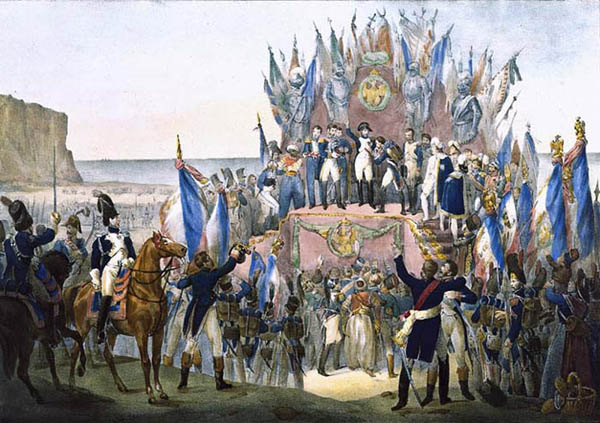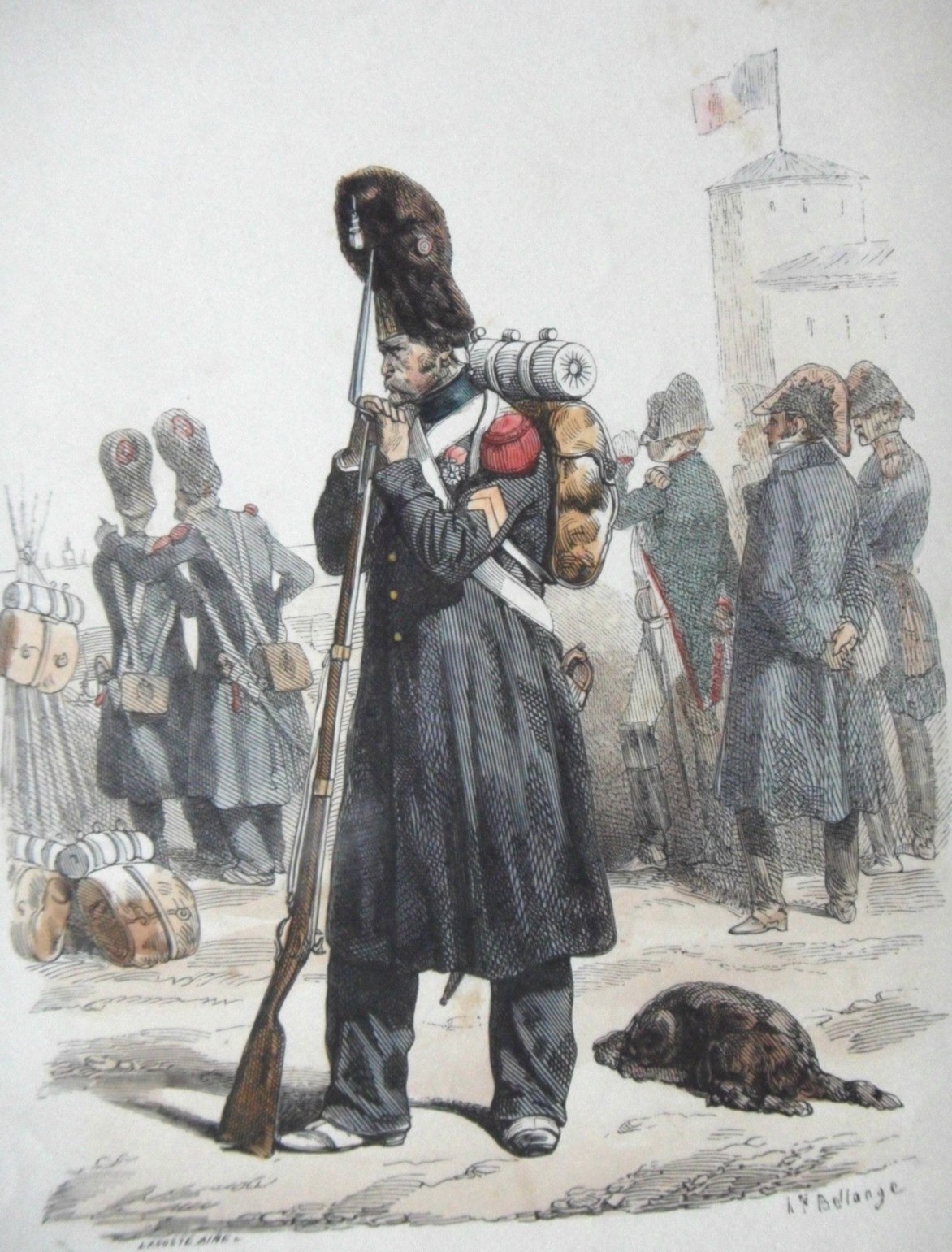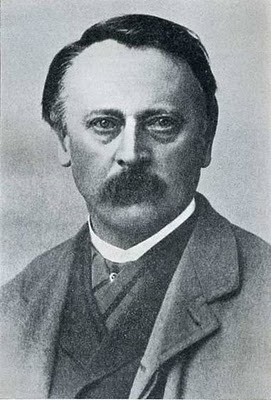|
Army Of Germany (1809)
The Army of Germany or ''Armée d'Allemagne'' was a military formation of the First French Empire during the War of the Fifth Coalition in 1809. The Army of Germany was distinct from the ''Grande Armée'' (Great Army) of the preceding Coalition Wars, which the Emperor Napoleon I had disbanded in October 1808.John H Gill, ''The Battle of Znaim: Napoleon, The Habsburgs and the end of the War of 1809'' (Greenhill, 2020), pp. 47–. In a letter to General Louis-Alexandre Berthier dated 8 April 1809, Napoleon describes the new army's creation: "from 1 April, all the troops that I have in Germany will be known under the title ''Armée d'Allemagne'', of which I reserve to myself the command in chief." He goes on to name its officers and describe its composition.''Correspondance de Napoléon Ier'' (Paris: Imprimerie Impériale, 1865), Vol. 18no. 15029, pp. 521–524 "...''à dater du 1er avril, toutes les troupes que j'ai en Allemagne seront connues sous le titre d'Armée d'Allemagne, dont j ... [...More Info...] [...Related Items...] OR: [Wikipedia] [Google] [Baidu] |
First French Empire
The First French Empire, officially the French Republic, then the French Empire (; Latin: ) after 1809, also known as Napoleonic France, was the empire ruled by Napoleon Bonaparte, who established French hegemony over much of continental Europe at the beginning of the 19th century. It lasted from 18 May 1804 to 11 April 1814 and again briefly from 20 March 1815 to 7 July 1815. Although France had already established a colonial empire overseas since the early 17th century, the French state had remained a kingdom under the Bourbons and a republic after the French Revolution. Historians refer to Napoleon's regime as the ''First Empire'' to distinguish it from the restorationist '' Second Empire'' (1852–1870) ruled by his nephew Napoleon III. The First French Empire is considered by some to be a " Republican empire." On 18 May 1804, Napoleon was granted the title Emperor of the French (', ) by the French and was crowned on 2 December 1804, signifying the end of the Fr ... [...More Info...] [...Related Items...] OR: [Wikipedia] [Google] [Baidu] |
War Of The Fifth Coalition
The War of the Fifth Coalition was a European conflict in 1809 that was part of the Napoleonic Wars and the Coalition Wars. The main conflict took place in central Europe between the Austrian Empire of Francis I and Napoleon's French Empire. The French were supported by their client states, including the Kingdom of Italy, the Confederation of the Rhine and the Duchy of Warsaw. Austria was supported by the Fifth Coalition which included the United Kingdom, Portugal, Spain and the Kingdoms of Sardinia and Sicily, though the latter two took no part in the fighting. By the start of 1809 much of the French army was committed to the Peninsular War against Britain, Spain and Portugal. After France withdrew 108,000 soldiers from Germany, Austria attacked France to seek the recovery of territories lost in the 1803–1806 War of the Third Coalition. The Austrians hoped Prussia would support them as their former ally, but Prussia chose to remain neutral. On 10 April 1809 Austri ... [...More Info...] [...Related Items...] OR: [Wikipedia] [Google] [Baidu] |
Grande Armée
''La Grande Armée'' (; ) was the main military component of the French Imperial Army commanded by Emperor Napoleon Bonaparte during the Napoleonic Wars. From 1804 to 1808, it won a series of military victories that allowed the French Empire to exercise unprecedented control over most of Europe. Widely acknowledged to be one of the greatest fighting forces ever assembled in history, it suffered enormous losses during the disastrous invasion of Russia in 1812, after which it never recovered its strategic superiority. The ''Grande Armée'' was formed in 1804 from the ''L'Armée des côtes de l'Océan'' (Army of the Ocean Coasts), a force of over 100,000 men that Napoleon had assembled for the proposed invasion of Britain. Napoleon later deployed the army in eastern Europe to eliminate the combined threat of Austria and Russia, which were part of the Third Coalition assembled against France. Thereafter, the name ''Grande Armée'' was used for the principal French Army depl ... [...More Info...] [...Related Items...] OR: [Wikipedia] [Google] [Baidu] |
Coalition Wars
The French Revolutionary and Napoleonic Wars, sometimes called the Great French War, were a series of conflicts between the French and several European monarchies between 1792 and 1815. They encompass first the French Revolutionary Wars against the newly declared French Republic and from 1803 onwards the Napoleonic Wars against First Consul and later Emperor Napoleon Bonaparte. Encarta-encyclopedie Winkler Prins (1993–2002) s.v. "coalitieoorlogen". Microsoft Corporation/Het Spectrum. They include the Coalition Wars as a subset: seven wars waged by various military alliances of great European powers, known as Coalitions, against Revolutionary France – later the First French Empire – and its allies between 1792 and 1815: * War of the First Coalition (April 1792 – October 1797) * War of the Second Coalition (1798 – 1802) * War of the Third Coalition (1803 – 1806) * War of the Fourth Coalition (October 1806 – July 1807) * War of the Fifth Coalition (April – October ... [...More Info...] [...Related Items...] OR: [Wikipedia] [Google] [Baidu] |
Napoleon I
Napoleon Bonaparte ; it, Napoleone Bonaparte, ; co, Napulione Buonaparte. (born Napoleone Buonaparte; 15 August 1769 – 5 May 1821), later known by his regnal name Napoleon I, was a French military commander and political leader who rose to prominence during the French Revolution and led successful campaigns during the Revolutionary Wars. He was the ''de facto'' leader of the French Republic as First Consul from 1799 to 1804, then Emperor of the French from 1804 until 1814 and again in 1815. Napoleon's political and cultural legacy endures to this day, as a highly celebrated and controversial leader. He initiated many liberal reforms that have persisted in society, and is considered one of the greatest military commanders in history. His wars and campaigns are studied by militaries all over the world. Between three and six million civilians and soldiers perished in what became known as the Napoleonic Wars. Napoleon was born on the island of Corsica, not long aft ... [...More Info...] [...Related Items...] OR: [Wikipedia] [Google] [Baidu] |
Louis-Alexandre Berthier
Louis-Alexandre Berthier (20 November 1753 – 1 June 1815), Prince of Neuchâtel and Valangin, Prince of Wagram, was a French Marshal of the Empire who served during the French Revolutionary Wars and the Napoleonic Wars. He was twice Minister of War of France and served as chief of staff to Napoleon Bonaparte. Born into a military family, Berthier served in the French Army and survived suspicion of monarchism during the Reign of Terror before a rapid rise in the ranks of the French Revolutionary Army. Although a key supporter of the coup against the Directory that gave Napoleon supreme power, and present for his greatest victories, Berthier strongly opposed the progressive stretching of lines of communication during the Russian campaign. Allowed to retire by the restored Bourbon regime, he died of unnatural causes shortly before the Battle of Waterloo. Berthier's reputation as a superb operational organiser remains strong among current historians. Early life Berthier was ... [...More Info...] [...Related Items...] OR: [Wikipedia] [Google] [Baidu] |
Confederation Of The Rhine
The Confederated States of the Rhine, simply known as the Confederation of the Rhine, also known as Napoleonic Germany, was a confederation of German client states established at the behest of Napoleon some months after he defeated Austria and Russia at the Battle of Austerlitz. Its creation brought about the dissolution of the Holy Roman Empire shortly afterward. The Confederation of the Rhine lasted from 1806 to 1813.Hans A. Schmitt. "Germany Without Prussia: A Closer Look at the Confederation of the Rhine". ''German Studies Review'' 6, No. 4 (1983), pp 9–39. The founding members of the confederation were German princes of the Holy Roman Empire. They were later joined by 19 others, altogether ruling a total of over 15 million subjects. This granted a significant strategic advantage to the French Empire on its eastern frontier by providing a buffer between France and the two largest German states, Prussia and Austria (which also controlled substantial non-German lands). ... [...More Info...] [...Related Items...] OR: [Wikipedia] [Google] [Baidu] |
Cavalry
Historically, cavalry (from the French word ''cavalerie'', itself derived from "cheval" meaning "horse") are soldiers or warriors who Horses in warfare, fight mounted on horseback. Cavalry were the most mobile of the combat arms, operating as light cavalry in the roles of reconnaissance, Screening (tactical), screening, and skirmisher, skirmishing in many armies, or as heavy cavalry for decisive shock attacks in other armies. An individual soldier in the cavalry is known by a number of designations depending on era and tactics, such as cavalryman, Equestrianism, horseman, trooper (rank), trooper, cataphract, knight, hussar, uhlan, mamluk, cuirassier, lancer, dragoon, or horse archer. The designation of ''cavalry'' was not usually given to any Military animal, military forces that used other animals for mounts, such as Camel cavalry, camels or War elephant, elephants. Infantry who moved on horseback, but dismounted to fight on foot, were known in the early 17th to the early 18t ... [...More Info...] [...Related Items...] OR: [Wikipedia] [Google] [Baidu] |
Imperial Guard (Napoleon I)
The Imperial Guard (French: ''Garde Impériale'') was originally a small group of elite soldiers of the French Army under the direct command of Napoleon I, but grew considerably over time. It acted as his bodyguard and tactical reserve, and he was careful of its use in battle. The Guard was divided into the staff, infantry, cavalry, and artillery regiments, as well as battalions of sappers and marines. The guard itself as a whole distinguished between the experienced veterans and less experienced members by being separated into three sections: the Old Guard, Middle Guard and Young Guard. History The Guard had its origin in the Consular Guard (''Garde des consuls''), created November 28, 1799, by the union of the Guard of the Directory (''Garde du Directoire exécutif'') and the Grenadiers of the Legislature (''Grenadiers près de la Représentation nationale''). These formations had for principal purpose the security of the executive and legislative branches of the French ... [...More Info...] [...Related Items...] OR: [Wikipedia] [Google] [Baidu] |
Donauwörth
Donauwörth () is a town and the capital of the Donau-Ries district in Swabia, Bavaria, Germany. It is said to have been founded by two fishermen where the rivers Danube (Donau) and Wörnitz meet. The city is part of the scenic route called "Romantische Straße" ( Romantic Road). The city is situated between Munich and Nuremberg, 46 km north of Augsburg. History Donauwörth grew up in the course of the 11th and 12th centuries under the protection of the castle of Mangoldstein, became in the 13th century a seat of Duke Ludwig II of Bavaria, who, however, soon withdrew to Munich to escape from his wife, Duchess Maria of Brabant, whom he had there beheaded on an unfounded suspicion of infidelity. The town received the freedom of the Holy Roman Empire in 1308, and maintained its position in spite of the encroachments of Bavaria till 1607, when the interference of the Protestant inhabitants with the abbot of the Heilig-Kreuz called forth an imperial law authorizing the duke o ... [...More Info...] [...Related Items...] OR: [Wikipedia] [Google] [Baidu] |
Battle Of Aspern-Essling
In the Battle of Aspern-Essling (21–22 May 1809), Napoleon crossed the Danube near Vienna, but the French and their allies were attacked and forced back across the river by the Austrians under Archduke Charles. It was the first time Napoleon had been personally defeated in a major battle, as well as his first defeat in a decade. Archduke Charles drove out the French but fell short of destroying their army. The Austrian artillery dominated the battlefield, firing 53,000 rounds compared to 24,300 French. The French lost over 20,000 men including one of Napoleon's ablest field commanders and closest friends, Marshal Jean Lannes. Background At the time of the battle Napoleon was in possession of Vienna, the bridges over the Danube had been broken, and the Archduke's army was near the Bisamberg, a hill near Korneuburg, on the left bank of the river. The French wanted to cross the Danube. A first crossing attempt on the Schwarze Lackenau on 13 May was repulsed with some 700 Frenc ... [...More Info...] [...Related Items...] OR: [Wikipedia] [Google] [Baidu] |
Battle Of Wagram
The Battle of Wagram (; 5–6 July 1809) was a military engagement of the Napoleonic Wars that ended in a costly but decisive victory for Emperor Napoleon's French and allied army against the Austrian army under the command of Archduke Charles of Austria-Teschen. The battle led to the breakup of the Fifth Coalition, the Austrian and British-led alliance against France. Wagram was the largest battle in European history up to its time. In 1809, the French military presence in the Confederation of the Rhine was diminished as Napoleon transferred a number of soldiers to fight in the Peninsular War. As a result, the Austrian Empire saw its chance to recover some of its former sphere of influence and invaded the Kingdom of Bavaria, a French ally. Recovering from his initial surprise, Napoleon beat the Austrian forces and occupied Vienna at the beginning of May 1809. Despite the string of sharp defeats and the loss of the empire's capital, Archduke Charles salvaged an army, with ... [...More Info...] [...Related Items...] OR: [Wikipedia] [Google] [Baidu] |







